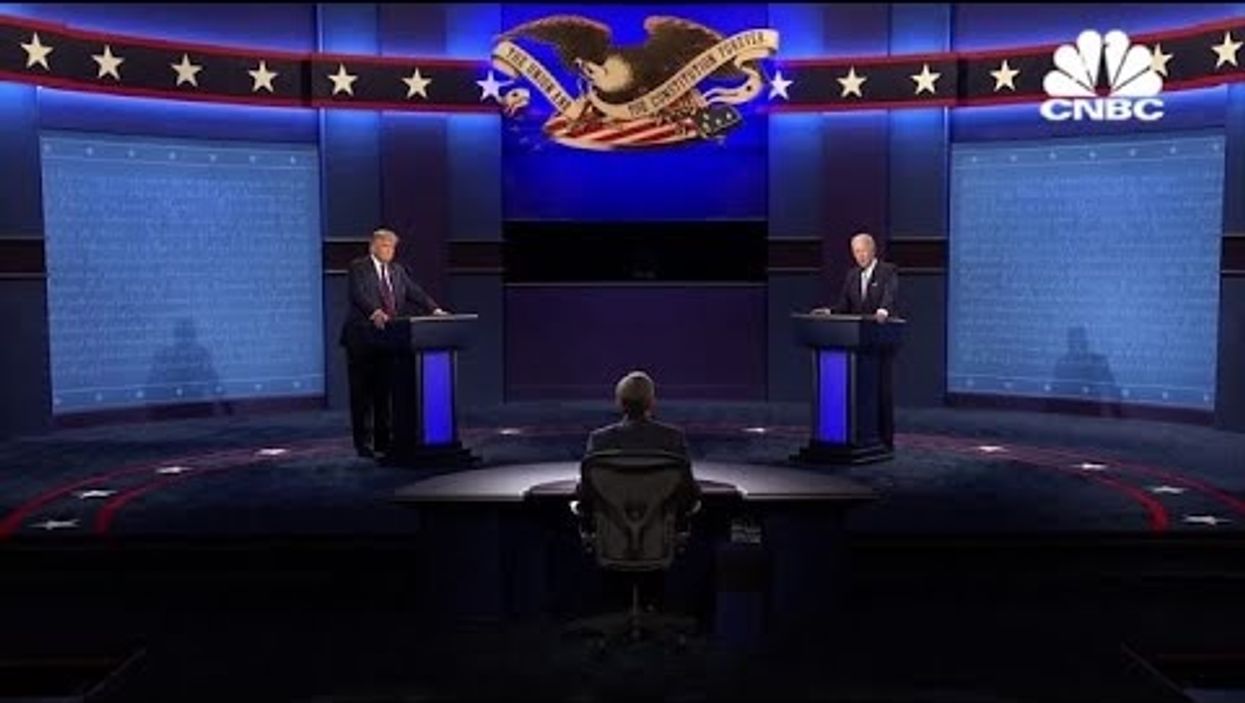During the first presidential debate on Tuesday night, President Trump made multiple claims about fraudulent activity associated with the 2020 election. He claimed that there were "unsolicited ballots" being sent to voters. "You're soliciting, you're asking, they send it back, you send it back. I did that. They're sending millions of ballots all over the country. There's fraud," Trump said. In some states like Oregon and Colorado, if you're registered to vote, state election officials will automatically send your ballot through the mail to be returned via mail or in-person drop-off. In other states, voters have to request an absentee ballot be sent to them.
Trump claimed ballots were being discarded in rivers and creeks. "They found them in creeks. They found some with the name 'Trump,' just happened to have the name 'Trump,' just the other day, in a wastepaper basket," Trump said. There is no evidence of ballots being thrown into any body of water. Trump is referencing nine military ballots that were improperly thrown out in Pennsylvania by a temporary election worker who was later fired. Seven of the nine ballots were for Trump.
The president also accused mail carriers of selling ballots. "Take a look at West Virginia. Mailmen are selling the ballots. They're being sold," Trump said. One mail carrier in West Virginia pleaded guilty to one count of election fraud and one count of injury to the mail for tampering with eight primary ballot request forms. He changed the party affiliation from Democrat to Republican. There is no evidence any postal workers sold any ballots.
Trump also made it seem as though in some states ballots can be sent in after Election Day. "Can you imagine where they say you have to have your ballot in by November 10th? November 10th. That means, that is seven days after the election, in theory should have been announced," Trump said. But that is now what states have planned. Some states allow ballots to arrive after Election Day as long as they are postmarked by Nov. 3. Others permit election officials to keep counting ballots after Election Day, given the anticipate record number of voters using the mail this year. In Pennsylvania, for example, Nov. 10 is the last day for county boards of elections to receive military and overseas absentee ballots (submitted for delivery no later than 11:59 P.M. on November 2).
Trump claimed that voters in a "Democrat area" got two ballots. Although there can be mishaps with mail-in voting, there is no evidence of widespread fraud.



















Trump & Hegseth gave Mark Kelly a huge 2028 gift